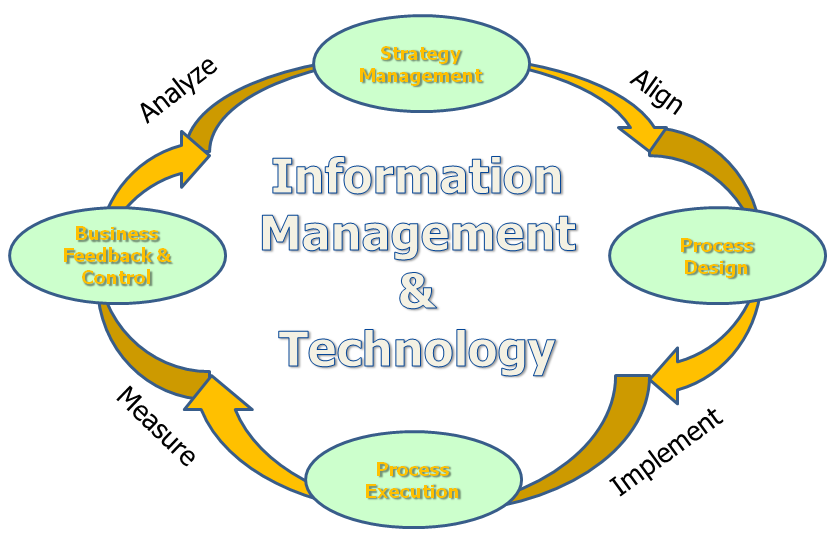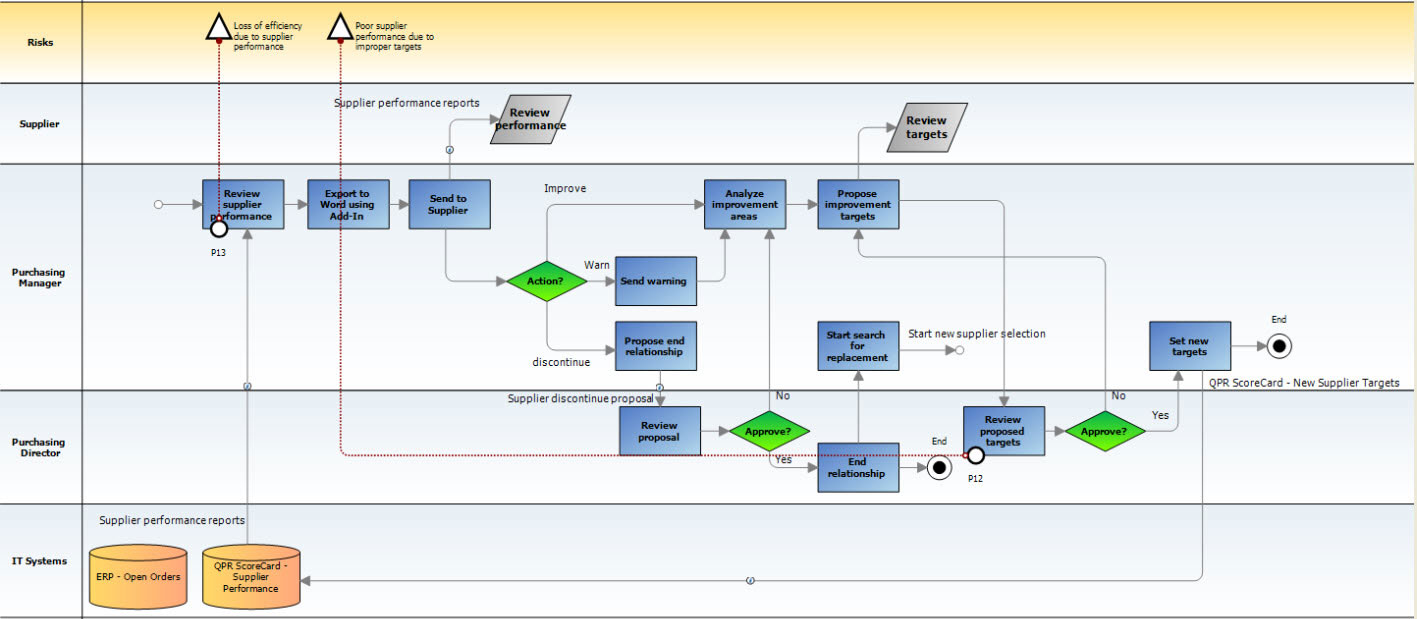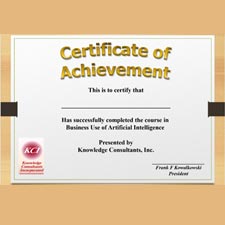Consulting Services (18)
Implement Enterprise Performance Goals
Automation: A Key Driver for the Success of a Strategic Management System
Many executives are finding it difficult to improve the performance of their companies in today's competitive environment and realizing that the problems they face are structural, not just cyclical. Traditionally, their response in tough times has been to put pressure on short-term operating performance to boost earnings, but this approach is no longer adequate. A new organizational strategy is required to develop growth initiatives even as companies pursue operating savings.
Strategy is playing an even more important role in the new economy - but in a transformed way compared to as it used to be in the industrial era, where strategy work was more isolated from operations. In the old days, it was much clearer how an asset creates value, e.g. how funds received were deployed in standard products to customers at fairly stable margins. Today it is harder, to establish that link when it comes to intangible assets, for example linking the knowledge of an employee, and a financial outcome. Strategy has to become an integral part of the management system of an enterprise. Strategy work can’t be delegated just to the CEO, his executive colleagues and to the strategic planning department that is serving as a staff department to the CEO. Everyone in an organization who makes decisions has to be linked to strategy and into a strategic feedback loop that feeds back important information as fast as possible about what is working and what is not working, to those who have to make or change major strategic decisions. For the management system of the enterprise, that means that strategy has to be linked and integrated with the operational management. Tying strategic planning to performance monitoring and decision support at a tactical level creates a very powerful approach. However, running such a sophisticated system manually or using excel sheets creates an unmanageable overhead on the management.
Lack of automation is one of the main reasons why deployments of strategic management systems fail. A study by the Gartner Group in 2001, led them to conclude that Enterprises that choose to ignore IT during the design and implementation of the Balanced Scorecard (BSC), will fail to embed the BSC in the organization.
Automating the strategy management system should also not create any overhead on the managers. The automated system should be simple, so that strategy management becomes a part of every day actions of the managers.
In order to address the need to automate strategic management systems, traditional Corporate Performance Management Systems have evolved into a new breed of Collaborative Management Systems such as those provided by QPR Software (www.qpr.com) which allows companies to communicate and define their corporate strategy and objectives on an entirely new level.
Planning, implementation, communication and commitment are the corner stones of collaborative management. This enables personnel at all levels of an organization to identify their individual responsibilities and targets so that strategy becomes understandable in an everyday operational sense.
The advantages of an automated Strategy Management System are as under:
- Facilitates and creates a framework for the Strategic Management implementation
- Provides Scalability of the Strategy Management System (think big, start smart)
- Top-down approach (need-based or strategy-focused solution instead of IT platform building)
- Visualizes and helps understand the strategy
- Agility (easy-to-adapt solution according to changes in the organization/environment)
- Saves time and money in data gathering and report generation
- Enables and systemizes feedback and interaction
- Provides tools for analysis and enables drill down to the real causes
- Provides one easily accessible interface to all strategy and performance related information
Across the world, progressive organizations such as the Commercial Bank of Dubai (Dubai,UAE), Gulf Agency Company (Dubai,UAE)and the Mustafa Sultan Group of Companies (Muscat, Oman) are leading the way in automation of Strategic Management Systems. As a case study we can look at the experience of the Commercial Bank of Dubai. Their Strategic Management System based on the Balanced Scorecard Methodology was manually deployed for four years, prior to automating this in August 2004. Benefits achieved though automation include greater visibility of strategic information, drill down capabilities to arrive at root causes of performance variations and transparency of objectives across levels of reporting.
Author: Jude Chagas Pereira - The Director of IYCON FZ LLC, a Consultancy and Technology Solutions Company, with a focus on providing High Quality Business and Technology Solutions to organisations across EMEA, Oceania and the Asian Subcontinent.
The Future of Business Process Management is NOW!
Business Process Management (BPM) is a management discipline that encourages looking at your whole business from the perspective of your customers and business partners. It measures your operational performance from an external perspective to see how competitive or attractive your business is from their point of view.

Competition in virtually every market and industry is increasing because customers are more capable of comparing offerings and switching suppliers than they were ten years ago. You may find proof of this in your personal or your organization’s purchasing activities. But, this is not new.
So what is "new" about BPM?
BPM encourages a continuous improvement of competitiveness-defining processes, where the business-side, not the IT-side, takes the leading role in process improvement, supported by BPM-supporting technology. Dramatic improvements in information management and its underlying technologies that allow information about the business’ performance to be automated is new! This allows your employees and the management team to see how the business is actually performing and meeting its objectives. BPM is achieved by implementing the following methodology:
- Strategy & Performance Management – clear objectives, goals, and measures.
- Process Discovery – identify current process activities, participants, documents, and decisions.
- Process Design and Development - end-to-end simulation and analysis of process to assess impact for new design.
- Process implementation, communication and administration – communication to all with the use of BPM tools to automate process activities.
- Process monitoring – accurate reporting of process based information (cycle times, idle times, workload, exceptions, and delays) to assess performance levels and bottlenecks.
- Business performance monitoring – actual data being compared to strategic or tactical targets provides visibility into changes to improve overall business performance.
For example, let's see a high-level Supply Chain process diagram. Each process may have specific performance measures that are maintained and displayed in a scorecard which shows how this process performs. 
Together, the collection of information about this process provides a clear understanding of the process bottlenecks, cycle time, resource consumption, and its overall performance for everyone to see.
Today's competitive market demands a realistic assessment of your whole business from the perspective of your customers and business partners. As Rummler and Brache wrote in Improving Performance: How to Manage the White Space in the Organization Chart, “An organization is only as good as its process.” BPM provides a methodology to improve your business performance.
Contact EAI for additional information on how about BPM can help your business.
The following schedule represents the training courses being held in the Mid-East and online remotely in 2022. KCI's focus is on multiple topical areas in business and information technology. Course brochures are available on request.
Training Seminars for 2024.
July 2024
| Data Analysis | Remote | 07/1/2024 |
Courses Offered through Innoverto. For Outlines and registrations contact Innoverto.
Focusing on Knowledge Transfer
Whether you’re interested in a public course offered with our partner, Innoverto, or want a private, custom workshop for your team, we have courses in a variety of areas. KCI provides a certification program to ensure your employees have retained their new knowledge and skills.
We’ve been providing training for over 15 years within the North American, Europe, Mid-East and Asia continents. To learn more about each of these areas, click the area of interest. At KCI, we value the transfer of knowledge.
The current global economic, political and technology forces are placing considerable stress on the ability of businesses to perform in concert with the rapid changes. As companies move forward the need for skilled professionals becomes more and more evident. Productivity and organization results depend on the skills and knowledge of the company staff. Whether the skills are specifically focused on one discipline such as process management or more general business analysis, Knowledge Consultants provides educational options to develop the organization with the know-how, skills and knowledge needed to meet its goals. How? KCI trains people to bridge the gap between the business perspective and the technology needed to enable the business to achieve the desired results.
KCI provides education in several subject areas, namely:
- Digital Transformation
- Business Analysis and Analytics
- Business Focused Artificial Intelligence & Machine Learning
- Process Performance, Management & Improvement
- Business Management Models, SWOT, 5-Forces, Strategic Alignment and others
KCI offers various educational services that cover the following areas. To learn more, click on the above areas listed.






